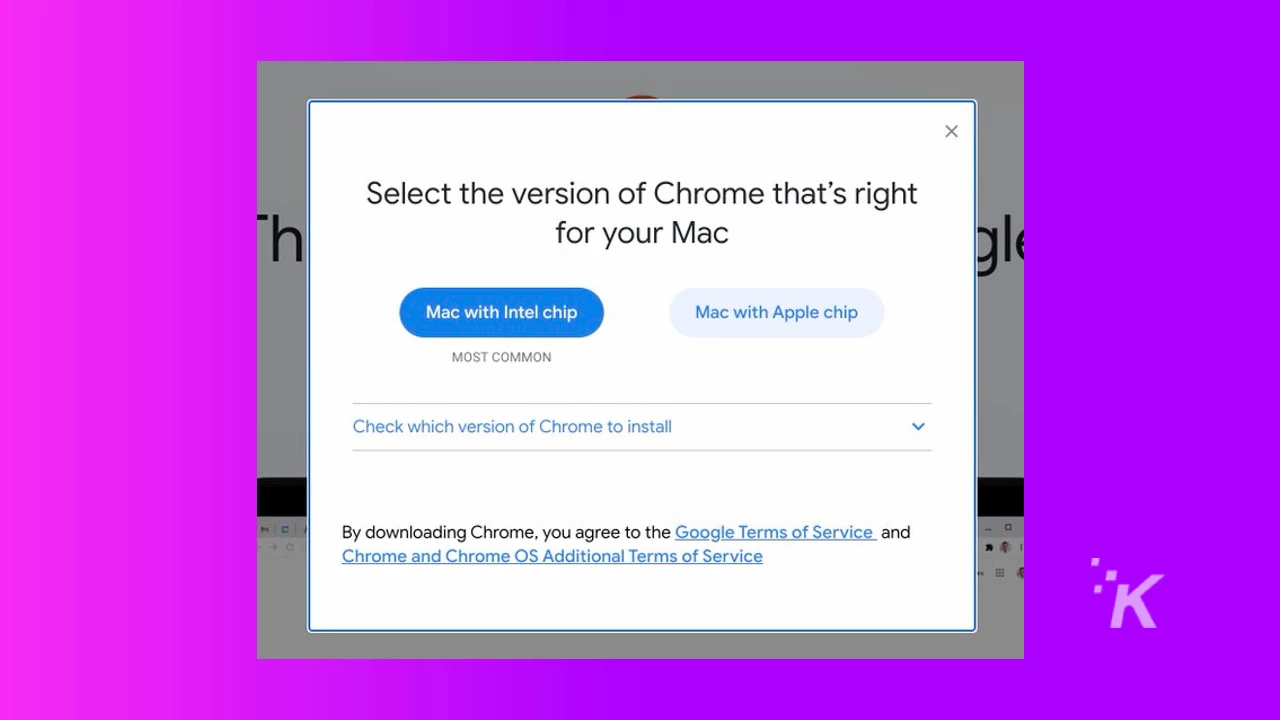

CHROME FOR MAC M1 SOFTWARE
The chipsets are designed to make the software performance sing. It’s because of that tight hardware and software integration that’s optimized for the best experience.
CHROME FOR MAC M1 ANDROID
Think of it this way: Why are Apple iOS devices generally rock solid and often better performing than the majority of Android devices even though the specs favor the latter? Without designing a chip that’s fully integrated with Chrome OS, Google and its partners aren’t offering the best Chromebook experience that could be had. Closing the loop then, a customized ARM architecture processor combined with Chrome OS fully optimized for that custom processor is clearly lacking right now in the Chromebook space.” And Apple’s advantage here isn’t just a single CPU architecture, but soon a unified application ecosystem, something that Google doesn’t have. It’s hard to optimize fully in that case. “Google has to rely on mostly off-the-shelf processors that are commodities. Indeed, I suggested this back in June when Apple announced it would be moving from Intel x86 silicon to its own in-house ARM designs (emphasis mine): So ARM-based Chromebooks are relegated to using more common, almost “off the shelf” processors. Nobody really has to since they’re all using the same software, be it Android or Chrome OS. But nobody is advancing those designs like Apple.
CHROME FOR MAC M1 FULL
Instead, they design the chip architecture and offer various licensing agreements to companies, depending on how much those companies want to tweak or change the design.Īpple has a full architecture license as do some of the other ARM-based chip designers I just mentioned. If you’re not familiar with ARM, they don’t make chips. That’s because the Qualcomm’s, MediaTek’s, Samsung’s and others who design ARM-based processors don’t deviate as much as Apple from the base ARM designs. None of them can compete with the new Mac products when it comes to performance. But those, such as the superb Lenovo Chromebook Duet, usually offer entry-level to (at best) mid-range performance. The rest are made up of ARM-based chipsets typically found in phones and have a similar instruction set to Apple’s M1 processor. Yes, there have been a few AMD-powered Chromebooks, which use the same architecture as Intel, but not many. Much of a Chromebook’s price, performance and capabilities revolve around that choice of chip. These days, most are powered by Intel’s lineup, ranging from the lowly Celeron all the way up to a Core i7. And, more importantly, it does so using less power, which leads to big improvements in battery life. Long story short: Apple’s custom chip can not only keep with some of the fastest processors from Intel and AMD, it can beat them in some cases from a performance standpoint. I could go on and on but I’ll leave it to you to seek out and read the reviews if you want. And on the new Air-which, with its efficient M1 chip, doesn’t need a fan-it took just 49 seconds. It took two and a half minutes on the MacBook Pro. Using iMovie to save a 74-second 4K video took more than five minutes on the 2018 MacBook Air, and sent its cooling fan into a tizzy. Both have 16 GB of RAM, double the quantity in the new Air I’ve been trying.


CHROME FOR MAC M1 PRO
In this household, the old Macs include a 2016 MacBook Pro with an Intel Core i7 chip and a 2018 MacBook Air with a Core i5. The M1 undisputedly outperforms the core performance of everything Intel has to offer, and battles it with AMD’s new Zen3, winning some, losing some. The performance of the new M1 in this “maximum performance” design with a small fan is outstandingly good. I personally tested the 13” M1 MacBook Pro and after extensive testing, it’s clear that this machine eclipses some of the most powerful Mac portables ever made in performance while simultaneously delivering 2x-3x the battery life at a minimum. And now more than ever, I’m wishing Google could do the same for Chromebooks.īefore getting into that though, here are some selected quotes from reviewers using the ARM-based Mac products to set the scene.

They’re nearly universal in their praise: The ARM-based Apple Silicon M1 chips compare favorably to the best that Intel and AMD have to offer in the x86 space. In case you missed it today, reviews for the new Apple Mac Mini, MacBook Air, and MacBook Pro were published.


 0 kommentar(er)
0 kommentar(er)
